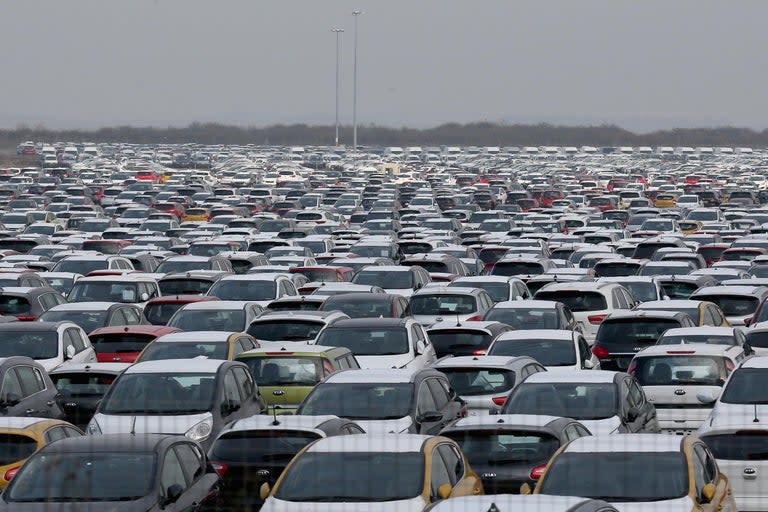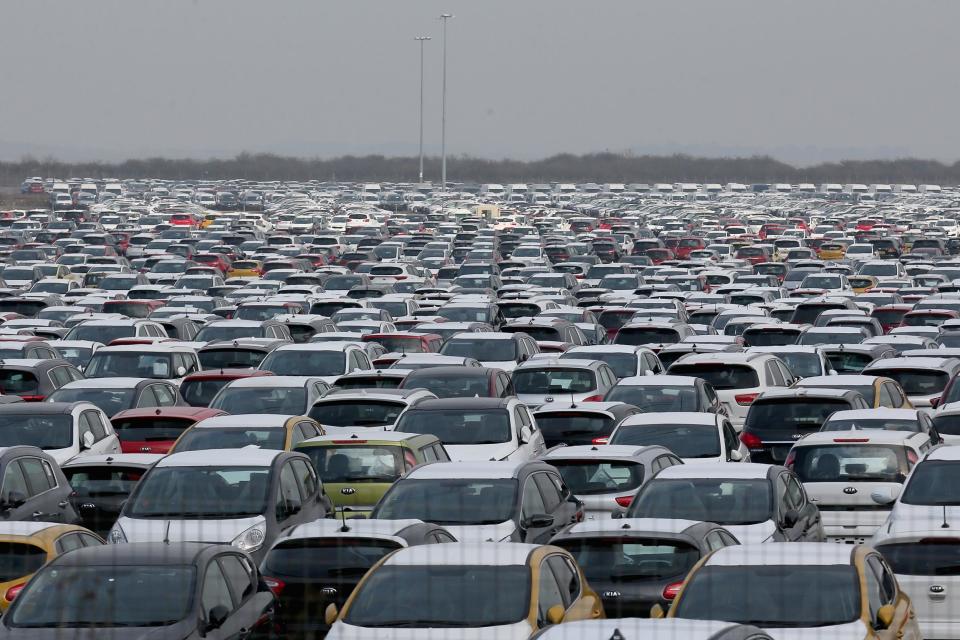No-deal Brexit will cost £22bn a year to compensate businesses, landmark analysis reveals
The cost of compensating UK businesses for a no-deal Brexit will reach £22bn a year – more than half of England’s schools budget – a landmark analysis of the impact of crashing out of the EU has found.
The study, seen by The Independent, warns that industries including cars, chemicals, textiles and aircraft, as well as much of agriculture, would all need hefty bailouts from punishing new charges.
Its findings were immediately condemned as “shocking and devastating” by one former Conservative cabinet minister, who urged fellow MPs to rise up to stop no deal.
The £22bn figure will fuel criticism of Boris Johnson for his claim that the costs of leaving the EU without an agreement – as he has vowed to do on 31 October, if necessary – would be “vanishingly inexpensive”.
It also dwarfs the £6bn which his rival, Jeremy Hunt, has pledged to set aside for no-deal compensation, an offer covering fishing and farming only.
In contrast, the respected UK Trade Policy Observatory (UKTPO) has measured the enormous impact across all of industry – covering both tariff and non-tariff costs, the latter from leaving the EU single market.
It calculates the annual bill for manufacturing at £18.5bn. The cost for agriculture would be £3.4bn – less than Mr Hunt’s pledge of £6bn, but taking the overall figure to almost £22bn.
Dr Michael Gasiorek, a senior economics lecturer at the University of Sussex, said it exposed the fallacy of senior politicians “trying to play down” the impact of a crash-out Brexit.
“A lot of Brexiteer politicians don’t appear to recognise the costs of a no deal, but it’s important to be honest about what it means,” he told The Independent.
“A no deal will be extremely costly for the sectors most affected and here are the actual numbers to show that.
“For example, if you are in the car industry and you are faced with 10 per cent tariffs on exports to the EU, it’s clear the industry and its supply chains will be badly affected.”
Justine Greening, a former educations secretary, said: “The £22bn estimate cost to Britain of a no-deal departure is a shocking and devastating impact – and behind that number is lost jobs and livelihoods.
“We cannot allow that to happen, above all when parliament has so clearly voted it down.”
Dr Gasiorek said the analysis was the most detailed yet into the consequences of no deal for industry, covering 132 different sectors and following the unveiling of the government’s tariff plans in March.
They would scrap duties on most imports, a “sledgehammer” exposing firms to undercutting by competition from China and other emerging economies, business leaders warned.
The UKTPO analysis finds the industries worst hit by the tariff changes and new costs to trade with the EU would be makers of motor vehicles, chemicals, metals and pharmaceuticals.
However, in percentage terms, fruit growers would suffer the most, followed by manufacturers of fabrics, textiles and fibre optic cables.
Dr Gasiorek added: “The £6bn spending pledge for farmers is some indication of how costly a no-deal Brexit would be for Britain, but agriculture is only one part of the story.
“If you take manufacturing as well, the hit would be more than £20bn – and, at the moment, it doesn’t seem there would be that sort of compensation coming through.”
Significantly, the study does not include the impact on services – accounting for more than 70 per cent of the UK economy – which will be studied in a later report.
Despite that balance, when it comes to UK trade with the EU, goods (£165bn) outweigh services (£110bn), official figures show.
Mr Johnson has been widely attacked, including by the Bank of England governor, for a false claim that tariffs could be avoided after a no deal – under a WTO law called Gatt 24, until a permanent agreement was struck
And both candidates were criticised for arguing their spending pledges could be met from a £27bn ‘war chest’ set aside by the chancellor for a crash-out Brexit.
The Institute for Fiscal Studies said they were misleading voters because the cash was for one year only – whereas the potential £22bn bill for industry will be a year-on-year burden.
A Department for International Trade spokesperson declined to comment on the calculation of a £22bn hit to UK business, instead arguing its planned “temporary tariff regime” would “help to protect British jobs” after a no-deal departure.
“Currently, around 80 per cent of total current UK imports are eligible for tariff free access. Under the temporary tariff, 86 per cent of total imports would be eligible for tariff free access,” a statement said.

 Yahoo News
Yahoo News 

